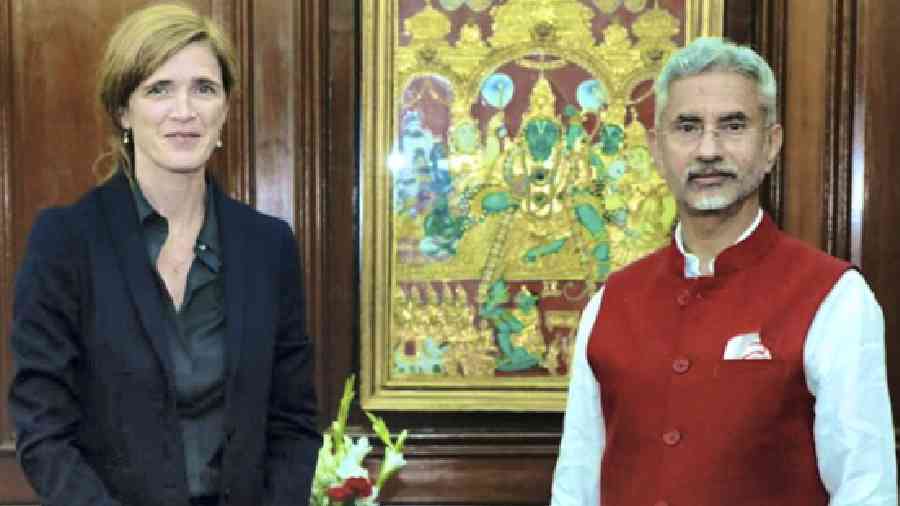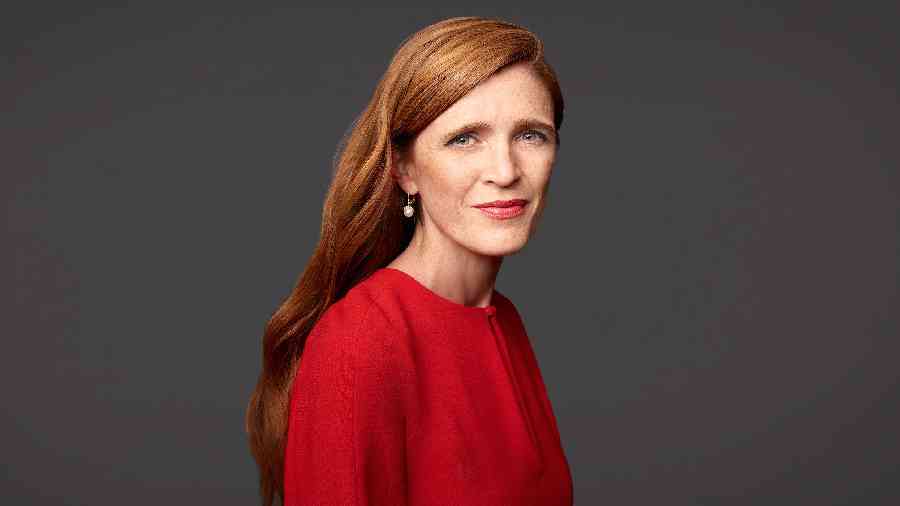India’s values and not its assets have positioned the country as a future development leader, the administrator for the United States Agency for International Development (USAID) said here on Wednesday.
Samantha Power added that how the US and India met injustices, protected pluralism and defended democracy and individual rights at home would determine the trajectories of both countries and the world.
Power, who delivered an interactive talk at IIT Delhi on “The world is one family”, did not resort to finger-pointing and accepted her country’s blemishes as well.
She referred to the siege of the US Capitol on January 6 last year by supporters of outgoing President Donald Trump as she dwelt on the strong headwinds against democratic rule the world over.
Power said India’s ingenuity, talent, resources and technological expertise can contribute heavily to the development of many countries, but stressed that India’s biggest strength was its democratic tradition and values.
“Ultimately, what has positioned India as a future development leader has not been its assets but its values. It has been India’s multi-ethnic, multi-party democracy that has allowed it to withstand the challenges it has faced and come out ahead stronger and more resilient,” she said.
“It has been its support for free expression over decades that has allowed injustices to come to light. It has been its tolerance for diversity and dissent that has allowed reforms to take hold and institutions to progress. India’s trajectory has been so strong because, not in spite, of democracy.”
She emphasised the importance of meeting the challenges posed by forces within the US and India “who seek to sow division, pit ethnicities and religions against one another, who wish to bend laws, abuse institutions and wield violence against those who stand in their way”.
She concluded: “How the US and India rise to meet these injustices, how fiercely we protect our hard-won pluralism, how insistently we defend our democracy and individual rights will determine not just our own trajectory but that of the world we inhabit.”
Power lauded India’s swift response to the crisis in Sri Lanka. She contrasted it with China’s foot-dragging after becoming one of Colombo’s biggest creditors since the mid-2000s, “offering often opaque loan deals at higher interest rates than other lenders and financing a raft of headline-grabbing infrastructure projects with often questionable practical use for Sri Lankans”.
Power also sought to set the record straight on India’s track record as a donor.
“When it comes to India’s role in international development, many are quick to label it as an ‘emerging donor’. But this characterisation is false,” she said.
“Even before Independence, India supported the creation of the Afro-Asian Conference…. Soon, thereafter, Prime Minister Nehru argued that the economic development of all countries was an obligation of the international community.”
Power’s comments come at a time the Right-wing ecosystem in India has been portraying the country’s current global importance as a result of Narendra Modi’s rule and not as a legacy inherited from the past.
“This was the philosophy rooted in perhaps the most treasured and important value of Indian society — vasudhaiva kutumbakam (the world is one family). And that family, Nehru believed, should be free to live without fear and without despair,” she said.
“That is why, even amidst its own challenges, India established a culture of fellowships and training beginning in 1949, offering scholarships to dozens of African and Asian students to study on the subcontinent. It is why in 1951 India joined other nations to launch the Colombo Plan….”
This is the second time this year that a senior member of the Joe Biden administration has reminded India of the Nehruvian legacy, which is often frowned upon by the current ruling dispensation.
In April, at the media briefing following the 2+2 dialogue in Washington, US secretary of state Antony Blinken had recalled Nehru’s visit to America soon after the establishment of diplomatic relations between the two countries.












